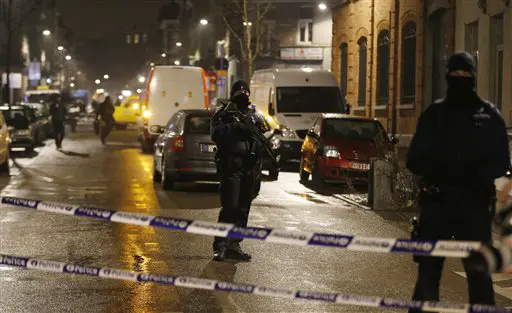The assassination of Egypt's top prosecutor Hesham Barakat in a car bomb on Monday is meant by extremists to intimidate the country's court system that is currently reviewing hundreds of cases and holding mass trials for self-proclaimed Islamists and members and loyalists of the now-outlawed Muslim Brotherhood group.
TIMING
The timing of the assassination comes one day before the second anniversary of June 30 mass protests that ended up with the ouster of former Brotherhood-oriented President Mohamed Morsi by the military in July 2013, which is considered by Morsi's supporters as "a military coup."
The bombing also came right after Sinai-based Ansar Bayt al-Maqdis militant group, an affiliate of the Islamic State regional militants, posted a video clip on Monday supposedly showing the assassination of two judges and a prosecutor in May in response to Morsi's death sentence.
Earlier in June, a court confirmed the death sentence against Morsi over mass jailbreak during the 2011 uprising that toppled long-time ex-leader Hosni Mubarak, besides handing mass death sentences to other Brotherhood members and supporters.
EFFECT ON JUDICIARY
"All fingers point to the Brotherhood group that wants to weaken judiciary and intimidate judges who are currently overseeing hundreds of cases related to Brotherhood figures," Saeed al-Lawindi, political researcher and expert at Cairo-based Al-Ahram Center, told Xinhua.
The expert believes that such terrorist attacks against judges will not affect the judicial system in the country and that it will instead weaken the position of the Brotherhood and its affiliates.
"I believe this assassination attempt will increase the strength and the will of the Egyptian judiciary and its men, and will only confirm the position of the Brotherhood behind bars," Lawindi added.
Lawindi's opinion is confirmed by Judge Abdullah Fathy, chief of Egypt's Judges Club, who said in response to Barakat's murder that "such an aggression will not intimidate or terrorize judges or stop them from continuing their noble message."
However, Mohamed Zarie, legal expert and head of Arab Penal Reform Organization, has a different point of view, as he sees the assassination of the country's prosecutor general "will not only affect the judiciary but will have its impact on the Egyptian state in general."
Zarie told Xinhua that the ability of terrorist groups to target top figures in the country shows that the situation now is "extremely dangerous."
"Judges and prosecutors have a great message to convey, yet the scene is complicated and they are humans after all. So, they might feel unease while doing their job or be affected by either fear or anger while making their judgments," the lawyer and human rights activist explained.
RECOMMENDED MEASURES
Some constitutional and judicial experts believe that the state has to resort to "exceptional" procedures to deal with rapid development of terrorist activities that extended now to target senior figure in the country.
"It is time for the government to implement the Terrorist Entity Law decisively. Unfortunately, we deal with terrorist as normal criminals," Tahany al-Gibaly, former deputy chief of the Supreme Constitutional Court, told Xinhua.
She added that the state needs to adopt stricter procedures to deter terrorist activities and also put restrictions on the social media websites like Facebook, saying they are commonly used in arranging terrorist acts.
For his part, Abdel-Aaty al-Shafei'i, former chief of the Appeal Court, recommended that terrorist crimes should be referred to "military courts" for swifter performance.
"In light of this great development of terrorism, such crimes should be referred to military judiciary because civil judiciary is already burdened with thousands of cases and so the military courts will be faster," Shafei'I told Xinhua.
The former top judge explained that military courts are more suitable and efficient in dealing with terrorist crimes that undermine the security and stability of the country.
"The complicated procedures imposed by the criminal procedures law adopted by civil courts cannot cope with the fast pace of terrorism and its threats to the security of nation," he added. Enditem
 简体中文
简体中文

